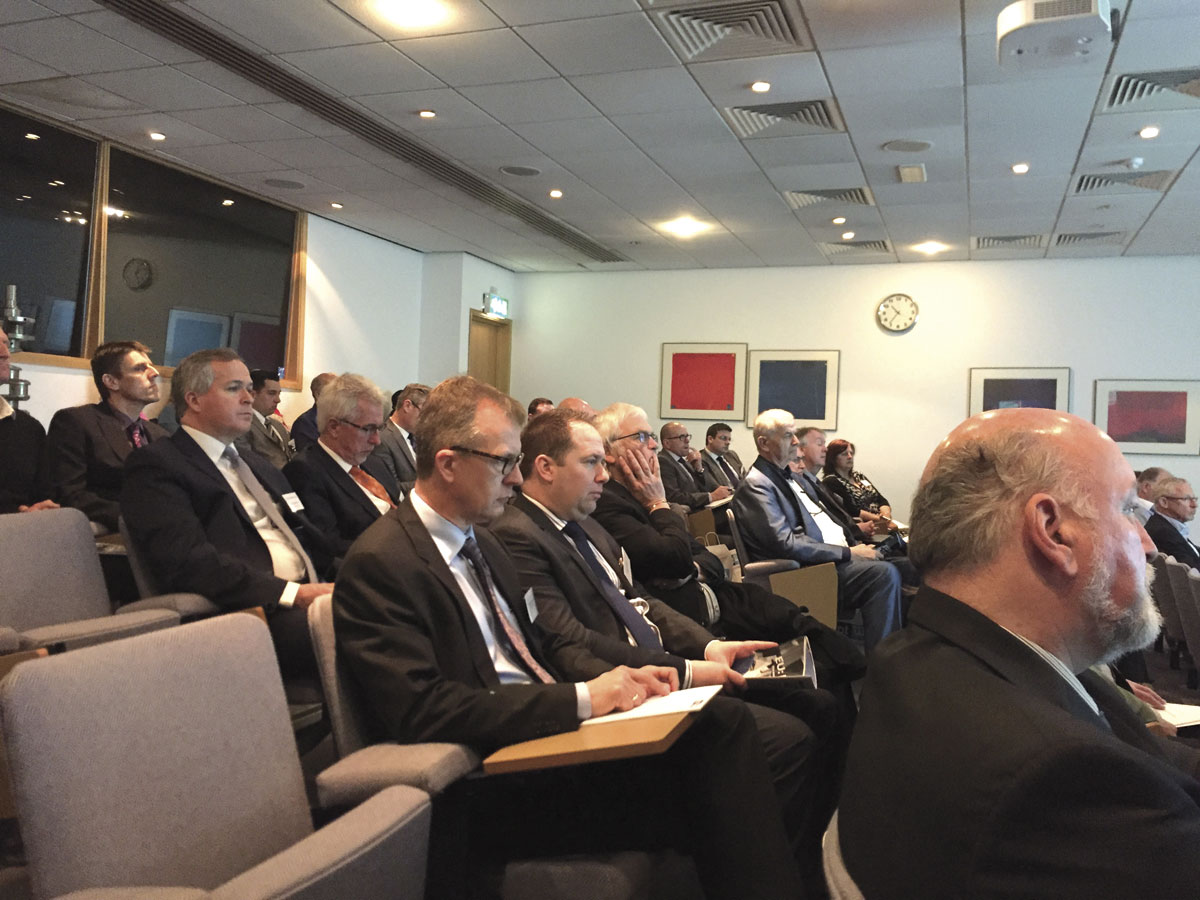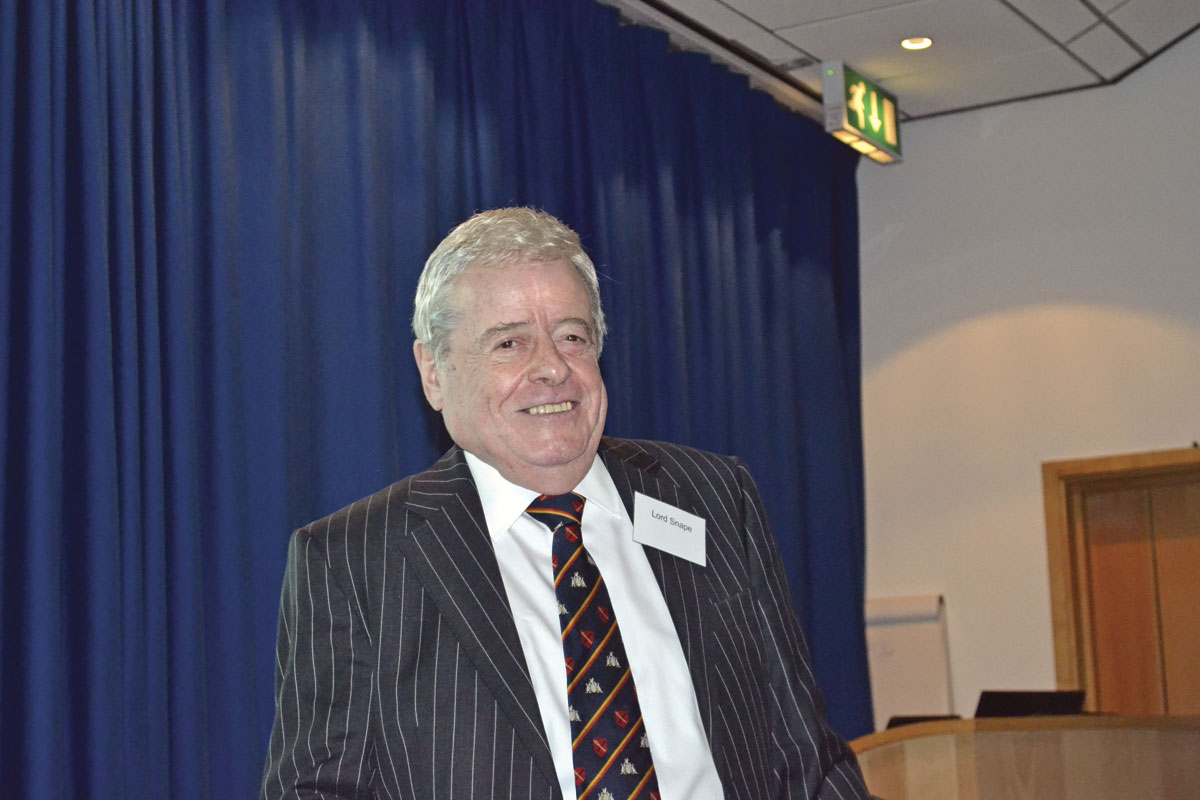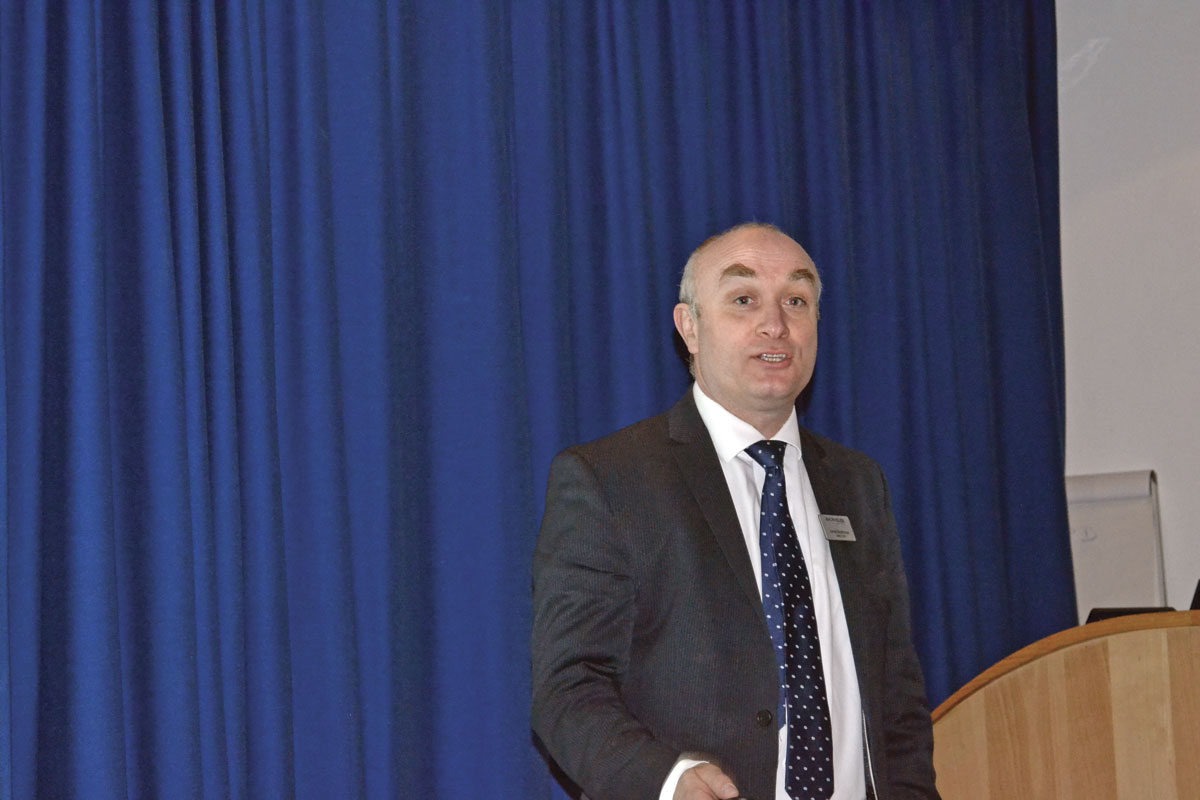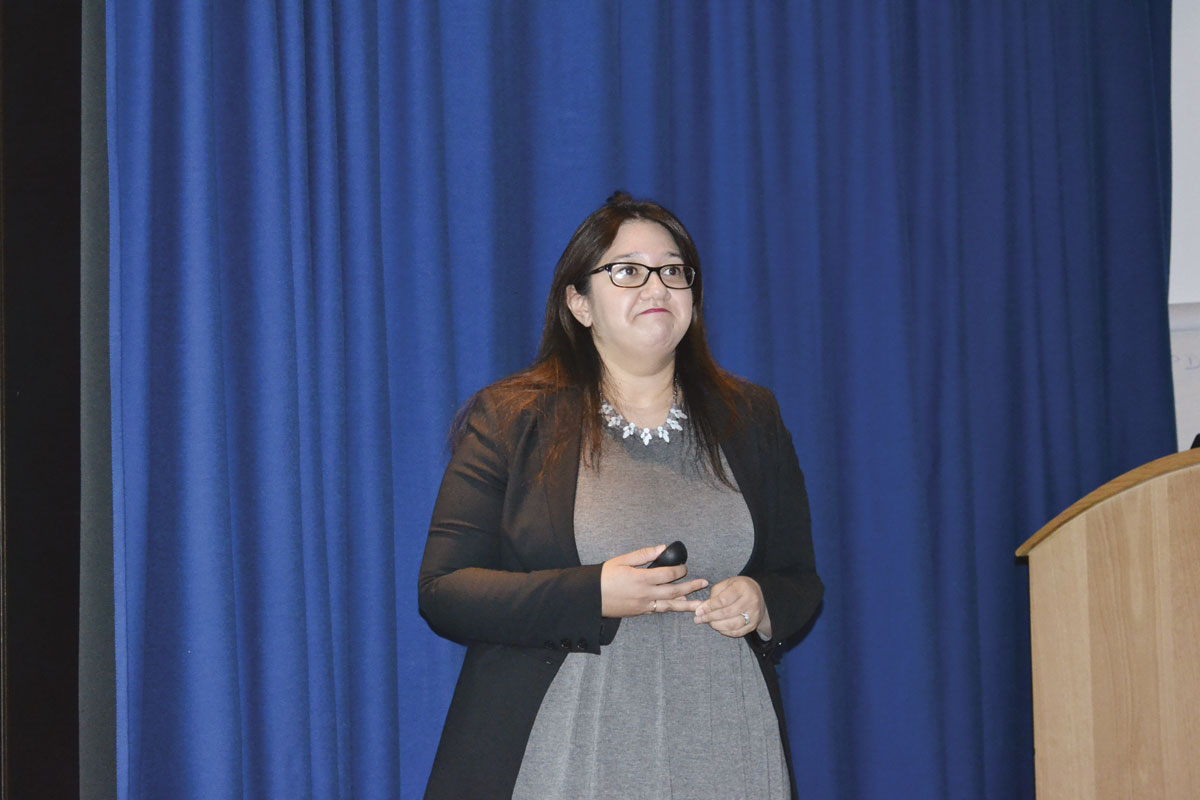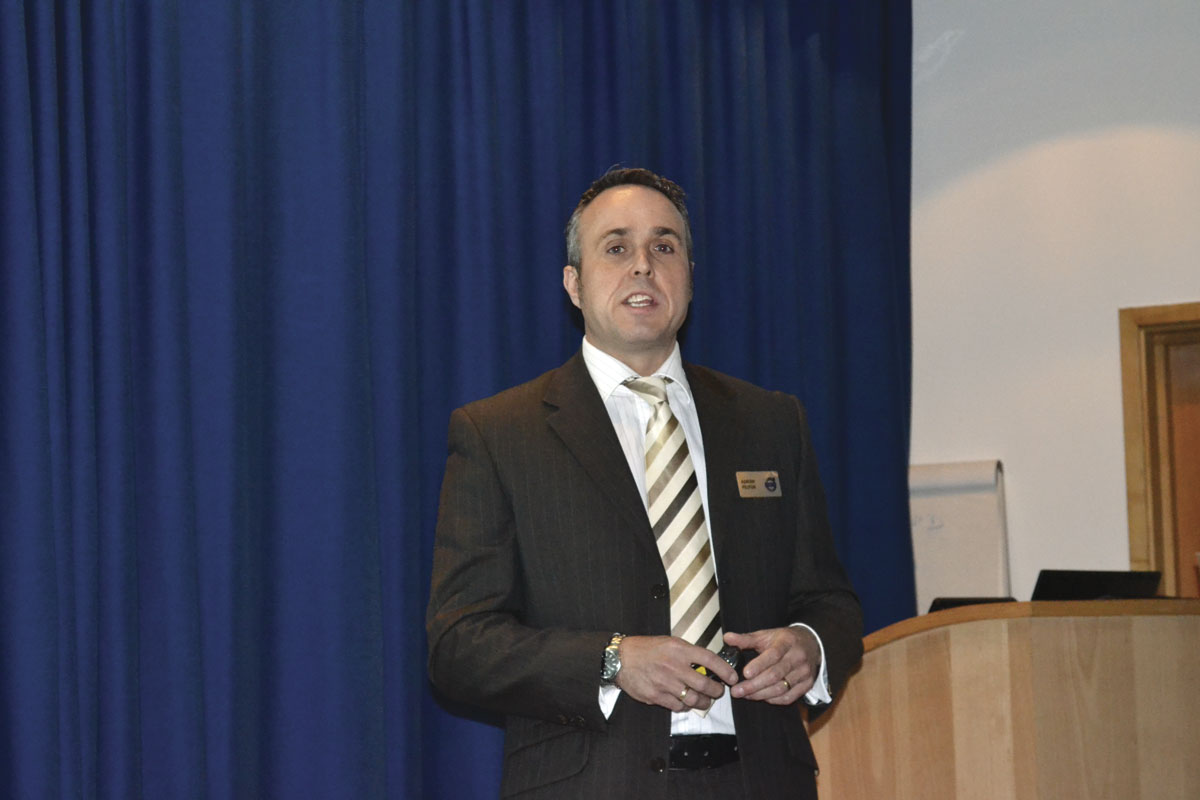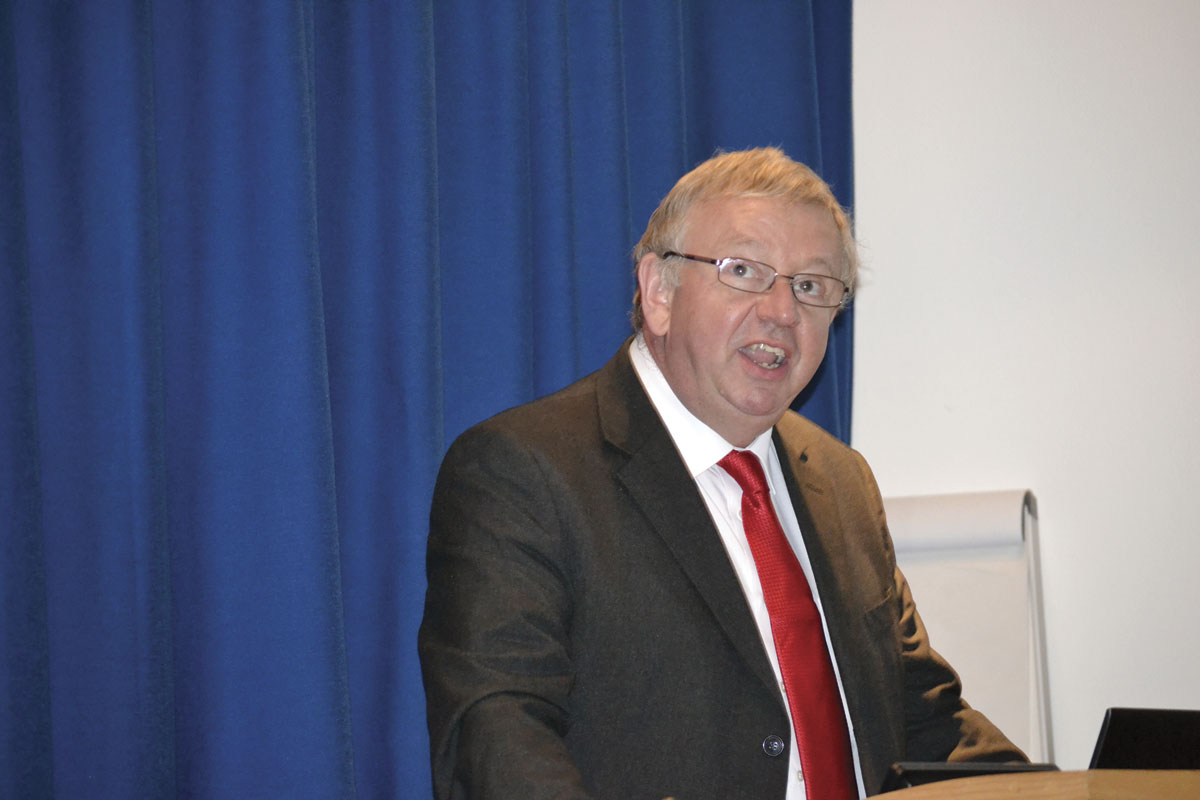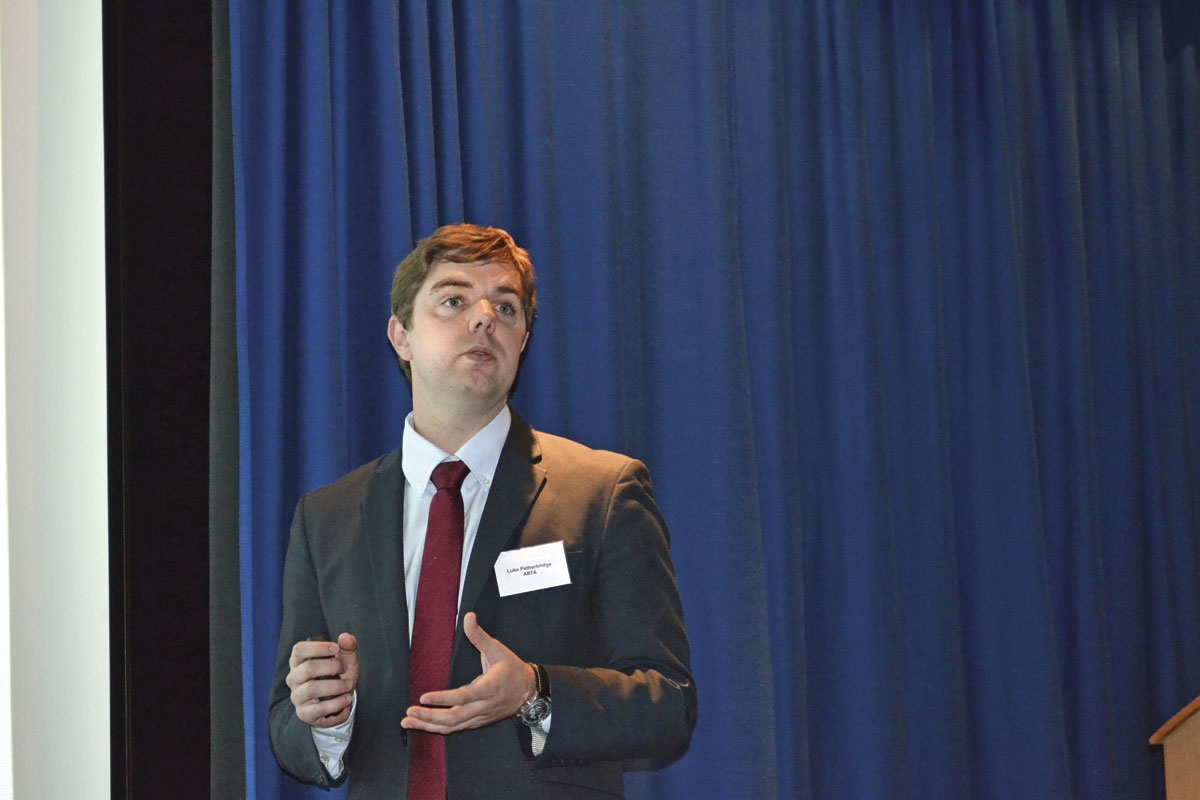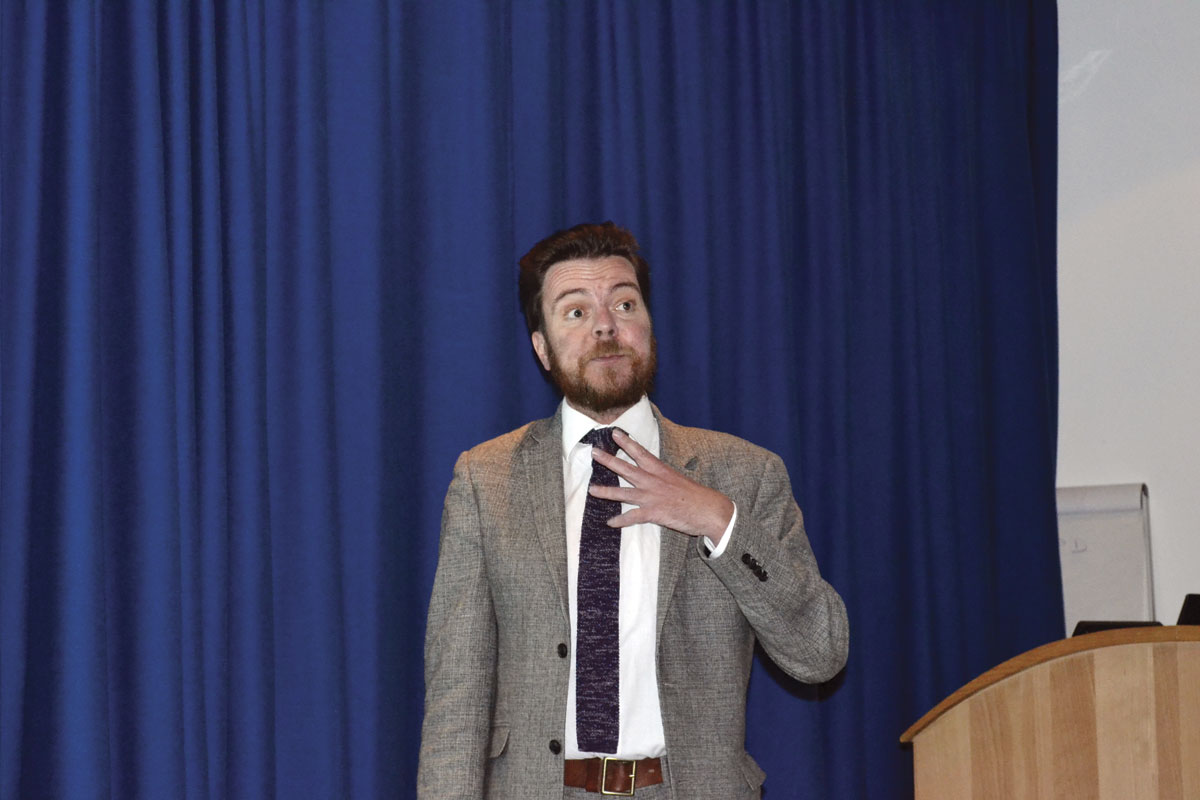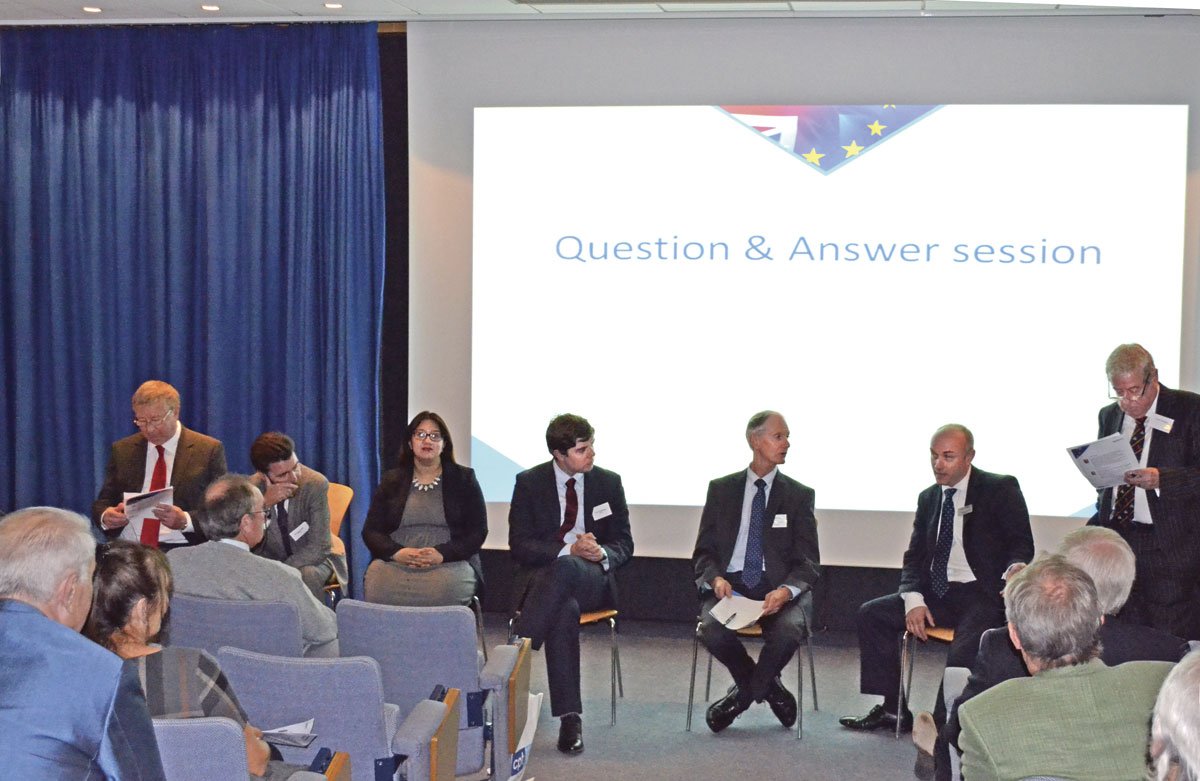The Brexit debate
Should we stay or should we go?
In or Out? That is the question on everybody’s lips at the moment. But what are the consequences should we vote to stay or go? Most of us don’t have the specialist knowledge to be able to make an informed decision either way, so the CPT put together a panel of industry and business experts to help us decide.
Volvo were hosts for the event at their impressive truck and bus centre in Warwick and local coach company, Ridleys, provided transfers for delegates from Warwick Parkway train station.
The purpose of the day was to provide the industry with unbiased information on the Brexit campaign, in preparation for the referendum vote on 23 June. Chaired by Lord Snape in his own imitable and often humorous way, he kicked off proceedings by giving a background to the UK’s position in Europe. He commented on the media speculation and scaremongering that was prevalent within certain national newspapers and noted ‘enthusiasm from the get out community was gaining momentum.’
Opinion polls suggest that the ‘stays’ remain in front, although there is wide spread concern in Westminster that polling may change that outcome. Indications suggest that the ‘gos’ are more likely to vote than those that wish to remain and this ties in with the older generation who are statistically more likely to cast their vote. Conversely, the younger generation, who are more pro Europe are considered less likely to turn out on the day. He added, ‘Although no one can hand on heart actually forecast what the outcome of the referendum would be.’
Regulatory Compliance
The first speaker of the day was James Backhouse, Director in the law firm, Backhouse Jones. He began by asking for a show of hands as to who was undecided which way to vote and surprisingly, it was approximately 50% of the audience.
He explained in layman terms that the EU in essence was a series of treaties or agreements between member states and a framework from which to achieve economic and social harmony, ‘that enables the EU to make laws to bind members states and their citizens through directives and regulations’. These laws must also be superior to any laws made in the member state, where they clash and form part of the European Communities Act 1972.
Our sovereignty means that theoretically, at any time, Parliament can repeal against the EU and leave. This would mean a breach of the treaties which in turn would make the country look dishonourable and subject to sanctions and trade restraints. In reality, the country must give two years notice to leave and this period would be seen as a consultation period in which negotiations for trade etc would be made and we would remain an EU member during this time. The Government admits that two years to cover all treaty agreements is a big ask. The 27 remaining states could vote to extend this period, however, and during this entire process, the country would be in a state of economic instability. James commented that it would be difficult to predict the outcome of the negotiations.
Regarding trade, the EU is still likely to want to trade and have market access with the UK. Europe is our biggest importer and we export more to EU countries than anywhere else. Big traders with the UK, like Germany and France, may wish to set up individual agreements. International companies who manufacture in the UK such as Honda could be impacted either way, if they benefit from the UK leaving the EU, the EU may make trading more difficult.
With regards to laws and regulations, the status quo will remain until a deal, the consultation and extension periods are met. James then looked at specific acts that affect our industry and the potential impact on them. Regarding Operator Licensing, this is governed by EU regulation1071/2009, however, we have three Transport Acts in place which form part of this regulation and so little would change, the UK had O licensing before the EU. He suggested that the area most likely to change would be that of repute/financial standing. Driving licensing was also unlikely to change.
The CPC programme would disappear but as we are signatories to the AETR, a European agreement concerning the work of crews of vehicles engaged in international road transport, which provides similar provisions, it would be required to drive across Europe and also to trade within Ireland and Scotland. The AETR also regulates tachograph requirements and driver hours and so although the EU directives governing these at present would disappear, little would change. As James explained, ‘we enforce the regulations where others don’t’.
Much has been said on the subject of immigration and James reminded the audience how the industry had benefited from having European drivers to fill driver shortages. After leaving Europe, the UK could impose its own restrictions, making it harder for new applicants to enter. Existing migrants may choose to leave if the country is a less attractive place to work. James reiterated that those seeking political asylum would still be welcomed.
He summarised by saying that during an exit from Europe, operators should not assume that the negotiators representing our industry would have any knowledge of our sector and that it is important to communicate with the CPT as our industry representatives. He commented, ‘It is crucial that operators initiate a dialogue with our negotiators, from the start, for the PSV sector’s big issues.’
Employment Law
Rafia Ahmed, Employment Solicitor with Backhouse Jones, followed James, looking at what we could expect to change from an Employment Law perspective, in the event of Brexit.
She began by explaining that any UK laws would be unlikely to change but many tribunal judges refer to case law, much of which is EU led. In these circumstances, it is likely that EU laws may still stand. She said that in reality, we could expect small, gradual amendments over time. It is worth noting that Employment Law did not form part of the recent negotiations between the Prime Minister and the rest of the EU.
A significant proportion of the UK’s Employment Law comes from the EU and this includes discrimination, TUPE and working time regulations.
Regarding discrimination, the Equality Act 2010 is underpinned by EU law and it is very unlikely that this law would be removed. However, there is currently no cap on compensation and this is likely to be imposed if we left the Europe.
Removing TUPE laws or imposing significant changes, in Rafia’s opinion, would ‘cause chaos’ and be considered an unfriendly option within the business community. That said, the Government could use the opportunity to make the legislation more business friendly by making it easier to harmonise company’s terms and conditions, post transfer.
Holiday and sickness pay is now considered a normal part of someone’s salary and therefore would be unlikely to be removed, however, pay accrued during periods of sickness and commissions earned during holiday time may be reviewed so that a base salary only would payable. Rafia reminded those gathered that we should consider competition in the EU, what would make us attractive employers and that France had very strict Working Time Regulations.
She closed by looking at Freedom of Establishment. She explained how EU nationals have the right to work in the UK and that in the event of a leave vote, this could change. By limiting the labour supply, wages could increase and in turn the cost of goods, making the UK less competitive. Many businesses within the transport sector use the Freedom of Establishment to set up bases abroad where the costs are lower. Following Brexit, this would cease.
European Travel
Nick Greenfield, Head of Tour Operator Relations at ETOA (European Tour Operators Association) spoke of the possible implications on European Tourism, particularly with regards to visitor numbers and border controls.
He began with a brief introduction to ETOA and showed that the UK is the fifth most visited destination in Europe with in excess of 34 million visitors per annum and the majority of those visitors are from within the EU. Europe as a whole, is the number one tourist destination in the world and London plays a huge part in this, with the London-Paris combination being the biggest selling tour package.
Spend from visitors outside of Europe is almost equal to that from within, due to a longer dwell time and by imposing barrier restrictions, overseas visitors may find the UK a less attractive destination. Recent surveys were conducted within China and India to determine whether Visa applications were stopped during the process because of the inconvenience and it found that 30% and 25% were. With the UK being outside of Europe, it could have a negative effect as a holiday destination, in terms of barriers to entry and its perception as a standalone country.
Passport control could also become an issue as stricter enforcement would inevitably make for longer queues. This could directly affect the city as European business travel would be less straight forward. The city could also be affected in terms of economic fluctuations. If the UK was to initially become a cheap place to visit, it may encourage more European visitors however long haul visitors plan in advance and financial instability may be a sufficient deterrent for them to keep away.
The UK population is inherently bad at speaking languages other than English and without the Freedom of Establishment, many of the European multi language speaking employees could be lost. As a tourist destination that only speaks English, England could suddenly be a lot less desirable.
Nick summarised by saying that ETOA had grown from five operators to over 200, together with over 650 suppliers within the tourism industry. He admitted that the ‘Tour Operators Margin Scheme was all over the place but with regards to that, the package travel directive, drivers hours, tour guiding, we fight on these things. These might be reasons to run away, but if we are representing the industry from say a London base, outside of the EU, it might be very difficult to get Brussels to listen to what we have to say.’
‘These issues will still remain outside of Brexit but will we lose our voice? If we’re outside, how much influence will we have?’ He added that we need to think about how we would be perceived. ‘We need to consider our image and what message do we give off if we leave? The travel industry has brought Europe together.’
Lunch was followed by a brief presentation from Adrian Felton, City Mobility Manager for Volvo, who spoke of the sustainable transport solutions that Volvo have in production and in development.
The penultimate speaker was Luke Petherbridge, Public Affairs Manager at ABTA whose presentation was focussed on the possible effects on inbound and outbound tourism, from a report conducted by ABTA and Deloitte. Although all the presentations were unbiased, he started by saying that there were more risks involved in a vote to leave.
76% of UK holidays are taken in the EU, with 29.3m taken in 2014, whilst 63% of inbound visitors are from EU countries, equating to 8.8m visitors in the same year. From a business perspective, 68% of all business trips are taken within the EU whilst 73% of our business visitors come from there. Focussing on the coach industry specifically 1.73m trips were made in 2014 and 99.4% of these were with EU countries.
Luke explained that during a Brexit, there would be a trade-off between access to the single market and freedom of movement. Tour operators would need to consider; financial protection for package holidays, caps on mobile phone charges which have just been introduced, freedom to work, border free travel, access to free healthcare and bringing home unlimited goods.
Looking at these in more detail, some of these were covered by previous speakers but regarding financial protection, from a consumer and wholesaler perspective, it is worth considering what might happen in the event of your holiday company going bust. In an industry whose main customers are the over 50s, coach tour operators seriously need to think about the potential impact that losing the European Health Insurance Card (EHIC) would have on passenger numbers on European excursions. The one positive that came out of this was that coach operators might return to running duty free booze cruises.
He explained that the impacts to the travel industry following Brexit would include; regulatory, tax and trade, employment, investment, currency and confidence. In summary Luke said that the priority issues were the percentage of business done in the EU, strategy and operational impacts including supply chain, the importance of EU regulation and the likelihood of change, employment and the movement of staff and finally influence.
Before a lively Q&A session with the panel of speakers who where joined by John Johnson, Director of Johnson Coach and Bus, Steven Salmon, CPT’s Director of Policy Development presented ‘A gaze in to the crystal ball!’
A lot of what Steven had intended to say had already been covered by other speakers. He said that with regards to industry legislation and health and safety, the UK were ‘the gold standard of Europe’. He said that whatever legislation we repealed, the Government would want evidence of a better way of doing things. When looking at Freedom to Work, he commented that we didn’t put restrictions on our workers and we were only one of two countries that didn’t. On the subject of public procurement, he told us that the public sector were big customers of ours and that staying in the EU would stop the public sector from cutting out customers. Certain State Aid controls apply to charities in our sector and affect trade in our communities. These are lobbied for by UK Government and a Brexit would make these harder and not easier in these circumstances.
Currently the UK is subject to fines for not meeting EU Air Quality Controls. In local hands, this would cost the industry ‘a huge amount of money’, but Steven commented that we have a duty of care and should we leave the EU, air quality would still be a key issue.
Conclusion
The Q&A panel session sparked a healthy debate and it was clear that the audience members suffered from a lack of knowledge on the subject of whether we should stay in the EU or leave. The panel were asked whether they were prepared to commit to which way they would vote.
Interestingly they all said that they would remain within the EU. It isn’t for me to suggest one way or another which decision you should make, but what I will say was that I wasn’t one of the undecided, I thought I knew exactly where I sat. Having listened to the panel of experts, it left me considering my vote differently. I spoke to a number of operators and industry representatives afterwards, and the overriding opinion was that they had taken away a huge amount of information on areas that they hadn’t considered prior to the event. They also considered that what they had read in the media wasn’t necessarily representative of what the impact to the country and the industry would be if we voted out. Food for thought indeed.
